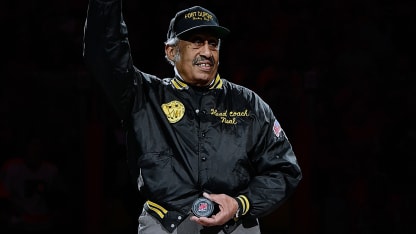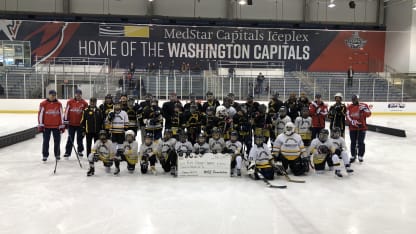WASHINGTON -- Neal Henderson thought it would be a one-shot thing.
When Henderson formed a hockey team in Washington, D.C., in 1978 to coach his son and his buddies in the game that he first fell in love with growing up in Canada, he figured he'd be done once the boys got older and moved on.
"I thought that would be the end of it," Henderson said. "But the kids kept saying 'We're coming back next year for you.' Parents would call me and say, 'My child is going crazy to play hockey' and then the next thing you know it's 'My son's friend wants to play hockey.'"
More than 40 years and 1,500 players later, the Fort Dupont Ice Hockey Club, North America's oldest minority-oriented youth hockey program, is going strong with Henderson at the helm.
The 82-year-old former semi-pro hockey player and Air Force veteran never imagined that his volunteer work with children in an aging indoor rink in Southeast Washington would earn him a place in the U.S. Hockey Hall of Fame.
He will be inducted into the U.S. Hall on Dec. 12 with a class of 2019 that includes NHL Commissioner Gary Bettman, goalie Tim Thomas, forward Brian Gionta and two-time U.S. Olympian Krissy Wendell-Pohl.
"It's something that sets you back on your heels, I'll tell you," said Henderson, the Hall's first black inductee and third person of color enshrined. "I never knew it would reach the heights that it did just had a bunch of kids who wanted to play hockey."
Since 1978, he has used the sport as a prism to instill teamwork, discipline, perseverance, responsibility and accountability in boys and girls from some of Washington's toughest neighborhoods, free of charge.
He has been a coach/father figure, a taskmaster who takes time to make sure his players are doing well on and off the ice -- doing something decades before it became the mission and mantra of the NHL.
"To me, he's the godfather of the Hockey Is For Everyone program," said Hockey Hall of Famer Willie O'Ree, who was the NHL's first black player and now serves as the League's diversity ambassador.



















